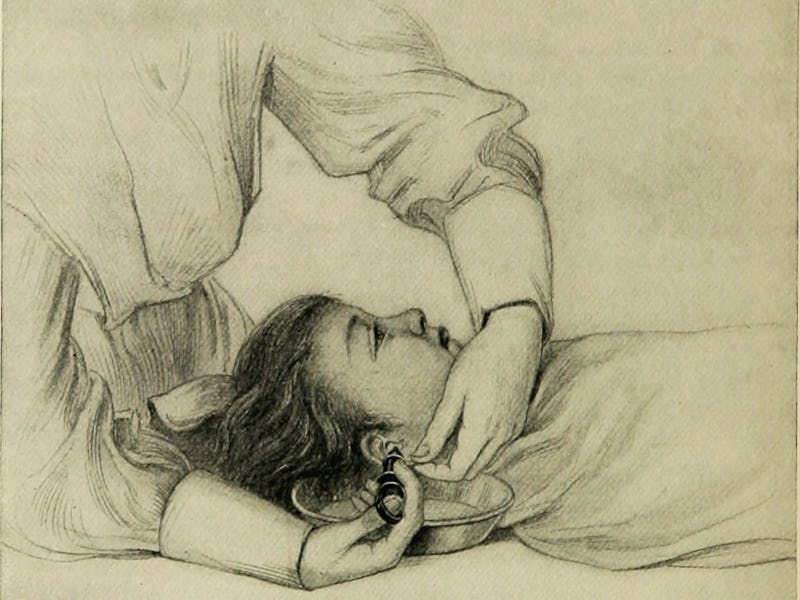This Old-Timey Disease is Coming Back in Some Parts of the World
It's not over... and it's terrifying.

A disease typically associated with the early 20th century has made a horrifying resurgence in the United Kingdom and parts of East Asia. What’s most disturbing is that no one really knows why.
On Monday, British scientists published a study in The Lancet Infectious Diseases that suggests scarlet fever cases have dramatically increased in the UK in just the past few years. The researchers analyzed public health data from England and Wales gathered between 1911 and 2016 and found that between 2013 and 2016, the number of reported scarlet fever cases spiked. From 2013 to 2014 alone, the number of cases tripled, and data shows they increased over the following years. Thankfully, the number of reported incidences seems to have dipped a bit in 2017.
Streptococcus pyogenes
According to the health news site STAT, scarlet fever has also been back on the rise in parts of East Asia since 2009. It killed two people in Hong Kong back in 2011, which experts attributed to an antibiotic-resistant strain.
Still, it’s anyone’s guess why the disease — which mainly affects children between five and 15 — has flared up yet again in certain places.
Scarlet fever is a bacterial infection caused by group A Streptococcus, or group A strep. It’s characterized by a sore throat, unusually red tongue, fever, and a rash that feels like sandpaper. While there’s no cure for scarlet fever, it can be treated with antibiotics, just like strep throat. Usually, this should clear the infection — but if it’s left untreated, the condition could worsen and even become fatal.
The Centers for Disease Control and Prevention (CDC) doesn’t track scarlet fever incidents, but a spokesperson told STAT they haven’t seen any evidence of a resurgence in the U.S. In the early 20th century, scarlet fever claimed thousands of American lives and permanently impacted others, including Helen Keller, who is believed to have gone blind from developing it as a child.
Hopefully, new insights into the illness will allow scientists to prevent it from spreading.
“The current upsurge is both real and truly falls beyond that previously documented suggesting an exceptional cause and not simply reflecting a natural cycle,” the researchers wrote in The Lancet. “Further understanding of the drivers behind the rise is essential to guide future prevention strategies.”